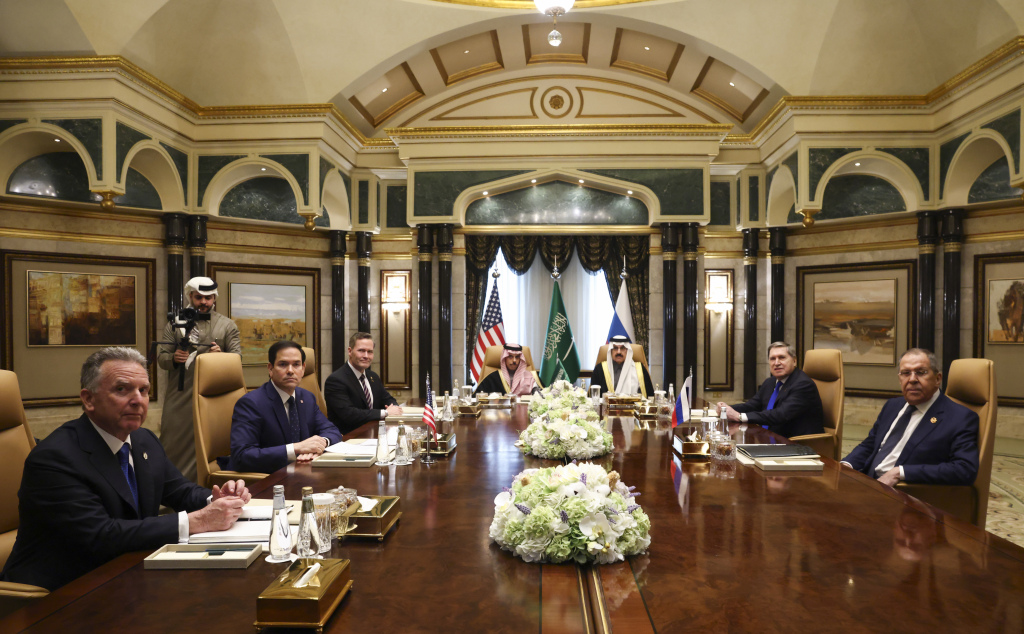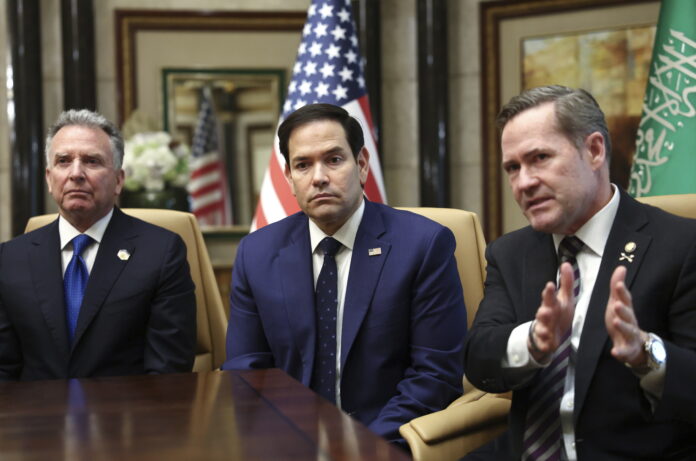Ukraine has been left out of a crucial meeting between American and Russian officials in Saudi Arabia this week, where the future of peace in the war-torn country is being discussed.
Zelenskyy Rejects Talks Without Ukraine
Ukrainian President Volodymyr Zelenskyy has slammed the move, declaring Ukraine will “never accept” any agreements made without its involvement.
The exclusion raises serious concerns over U.S. President Donald Trump’s approach, especially after reports surfaced that he is demanding control over half of Ukraine’s rare mineral wealth as the price for continued American support.

This development echoes a dark history of major world powers redrawing borders and making critical decisions without input from those directly affected.
Historical Precedents: When Great Powers Took Control
Throughout history, dominant nations have imposed decisions on smaller countries without their consent—often with devastating consequences.
- 1884-85: The Scramble for Africa – European powers divided Africa without African leaders, leading to brutal colonial rule and atrocities, including genocide in present-day Namibia.
- 1899: The Tripartite Convention – Germany and the U.S. split Samoa, ignoring local wishes, leaving lasting geopolitical divisions.
- 1916: The Sykes-Picot Agreement – Britain and France secretly carved up the Middle East, betraying promises to Arabs and Jews, fueling conflicts that persist today.
- 1938: The Munich Agreement – Britain and France appeased Hitler by handing him Czechoslovakia’s Sudetenland, leading to World War II.
- 1938: The Évian Conference – 32 countries refused to accept Jewish refugees from Nazi Germany, sealing the fate of many during the Holocaust.
- 1939: The Molotov-Ribbentrop Pact – The USSR and Nazi Germany secretly divided Eastern Europe, paving the way for the invasion of Poland.
- 1945: The Yalta Conference – The U.S., UK, and USSR decided post-war Europe’s fate, leading to decades of Soviet control over Eastern Europe.
Is History Repeating Itself?
As Washington and Moscow negotiate over Ukraine’s future without Kyiv, fears grow that history is repeating itself. European leaders have voiced alarm, with French President Emmanuel Macron urging that Ukraine’s sovereignty be respected. Meanwhile, Ukrainian officials warn that any deal made without them will not be recognized.
With tensions high and history as a warning, the world watches as major powers once again decide the fate of a nation—without its consent.




